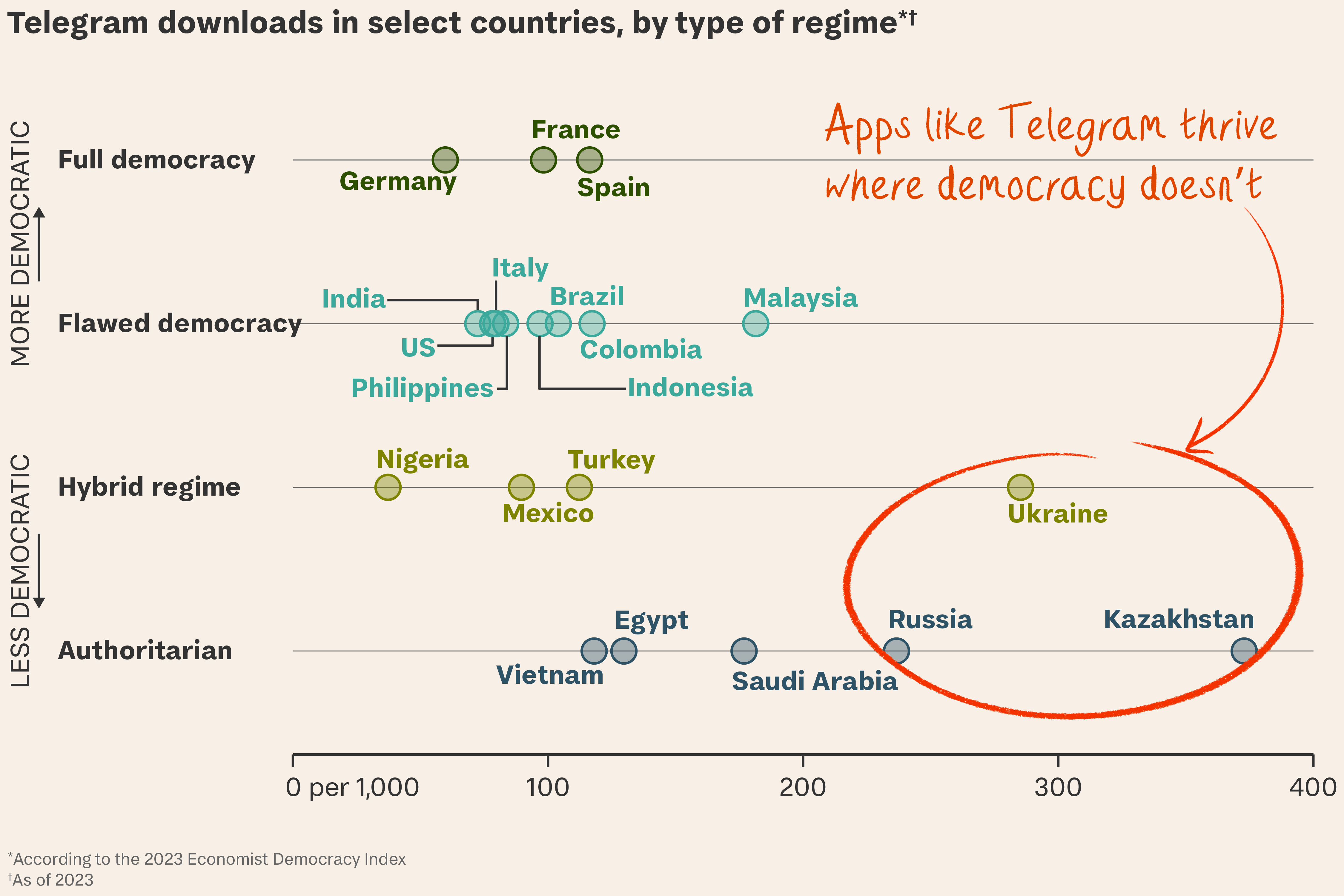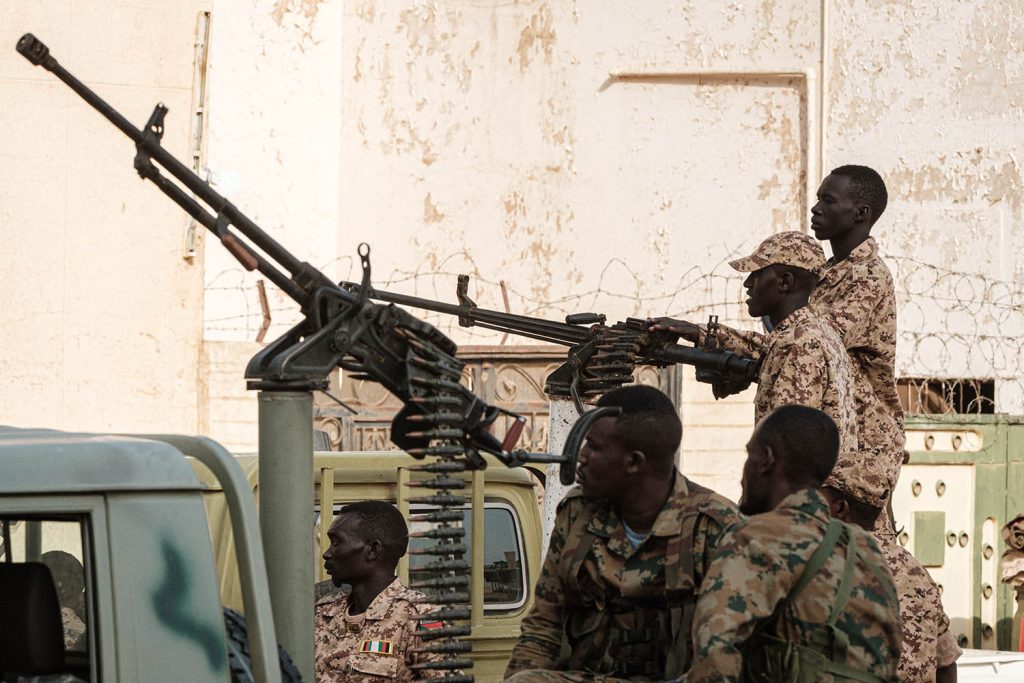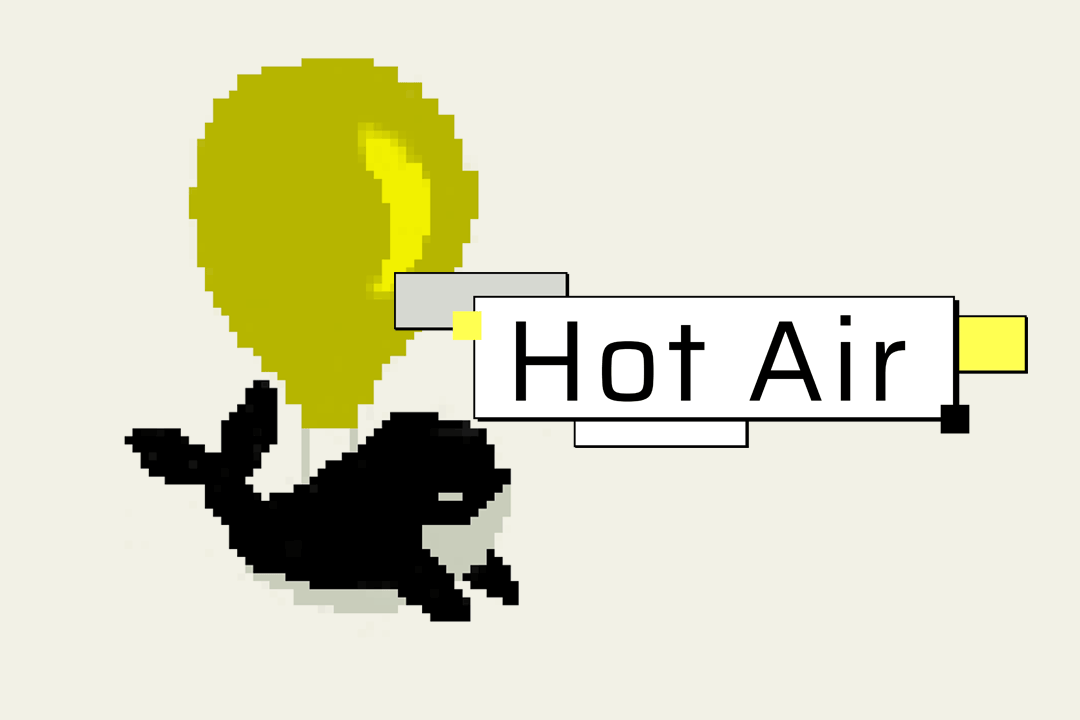
French prosecutors are due to decide today whether to charge Pavel Durov, Telegram’s chief executive, with cybercrime offences.
So what? Durov is a 39-year-old Russian-born billionaire and free-speech absolutist who runs one of the world’s biggest messaging apps. His arrest on Saturday, after landing in a private jet at Le Bourget airport outside Paris, is the most drastic national action yet taken against a social media boss.
- On Monday, French prosecutors said Durov’s arrest was linked to an investigation into a dozen alleged offences, including complicity in spreading child abuse material (CSAM), complicity in spreading drugs and money laundering.
- Telegram said in a statement that “it is absurd to claim that a platform or its owner is responsible for abuse of that platform”.
- Investigators have until today to decide whether to charge Durov or release him.
The Russian Elon. Durov’s Instagram is full of semi-naked pictures of him flexing his muscles, riding horses and quoting Marcus Aurelius (“What we do now echoes in eternity”). But behind the tech-bro swagger is a serious entrepreneur.
Durov was 22 when he founded Russia’s most popular social media network, VKontakte. Seven years later he fled Russia after refusing to hand the government data on Ukrainian users. Telegram is now based in Dubai.
While the platform hasn’t got much traction in the US and the UK, Telegram is the most popular social media platform in Russia and is used widely in India and the Middle East. Its 950 million users can either join public groups or message each other privately. Durev says it will be profitable “next year, if not this year” and is planning for an IPO.
No moderation. On Sunday, Telegram said it “abides by EU laws” and that “its moderation is within industry standards”. But the site’s FAQs tell a different story. While illegal content is technically banned from Telegram’s public channels, the company declares it will not moderate private chats in any way.
No guarantee of privacy. Unlike Signal or Whatsapp, Telegram is not end-to-end encrypted, meaning that the platform could hand private messages to law enforcement if it wanted.
But Durov has deliberately set up Telegram to prevent this from happening.
- Its data is hosted on servers in multiple jurisdictions, meaning a government agency would have to procure warrants from several countries to force access. The company boasts it has disclosed “0 bytes of user data to third parties, including governments.”
- Telegram’s focus on privacy has made it popular with pro-democracy activists and whistleblowers.
- But several expert reports have found it to be a significant hub of illegal activity, including child abuse material.
“Telegram is another level,” Brian Fishman, Meta’s former anti-terrorism chief, wrote on Threads this week. “It has been the key hub for ISIS for a decade. It tolerates CSAM. It ignored reasonable law enforcement engagement for years. It’s not light content moderation. It’s a different approach entirely.”
What next? Free speech absolutists are framing Durov’s arrest as a sign of global censorship.
- Elon Musk agreed with another X user who posted: “It’s Telegram today. It’ll be X tomorrow.”
- Edward Snowden, the US whistleblower resident in Russia, said the arrest was part of a trend that would eventually target “literally every other platform for dissent.”
Maria Butina, a Russian lawmaker who spent 15 months in a US prison for acting as an unregistered Russian agent, accused Europe of trying to seize control of Telegram. “Pavel Durov is a political prisoner – a victim of a witch-hunt by the West,” she said.
Legal experts were more circumspect. Daphne Keller, director of platform regulation at the Stanford Cyber Policy centre, says the US – like France – has laws preventing platforms from hosting unencrypted CSAM or terrorist material. To Keller, Durov’s arrest is less like an attack on Musk or Mark Zuckerberg and more akin to the prosecution of Ross Ulbricht, the operator of the Silk Road dark web marketplace.
What’s more. Much about the French case against Durov remains unclear, including exactly what offences (if any) he might be charged with. Durov denies any wrongdoing, but the broad question is clear: is he a free speech martyr, or another cyber criminal in an expensive suit?











